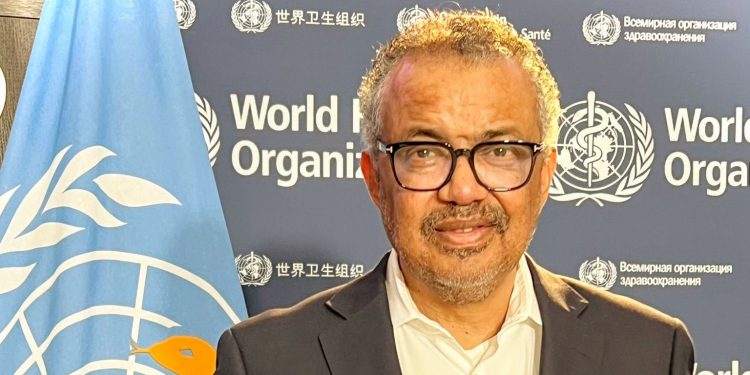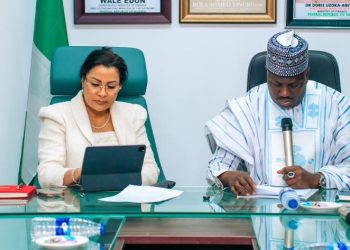World Health Organization has revealed that so far this year, 20 countries in Africa have reported more than 14 thousand confirmed cases, including 55 deaths.
WHO Director-General, Dr Tedro Ghebreyesus who made the revelation in a Press Briefing on Thursday disclosed that more than 75% of all confirmed cases and deaths in Africa this year have been in Democratic Republic of the Congo, where the outbreak of clade 1b has now spread to six provinces, including the capital Kinshasa.
He said, “Clade 1b has also spread to four neighbouring countries: In Burundi, more than 2 000 cases have been reported, largely in urban areas; In Uganda, there are 649 cases and a fast-expanding epidemic, especially in the capital Kampala”. Ghebreyesus added, “In Rwanda, 37 cases have been confirmed and in Kenya there are 19 cases; And cases have also been reported in at least 8 other countries in Africa, the Americas and Europe”.
Ghebreyesus added, “In Rwanda, 37 cases have been confirmed and in Kenya there are 19 cases; And cases have also been reported in at least 8 other countries in Africa, the Americas and Europe”.
The DG stated that WHO, Africa CDC and the partners are continuing to support countries to respond to these outbreaks and prevent further ones under our joint continental preparedness and response plan.
He made it that together with these organizatios, they are strengthening the “five Cs” of outbreak response, are Coordination; Collaborative surveillance and detection; Community protection; Care that is safe and scalable; And countermeasures, including vaccines. Ghebreyesus disclosed further that so far, six million vaccine doses have been pledged, of which 1.6 million are ready for distribution by the end of the year, adding that about 56 000 people have been vaccinated in 7 provinces of the DRC.
Ghebreyesus disclosed further that so far, six million vaccine doses have been pledged, of which 1.6 million are ready for distribution by the end of the year, adding that about 56 000 people have been vaccinated in 7 provinces of the DRC.
“And health officials there are preparing to administer a second dose, with vaccination starting in Kinshasa this week. We still face many challenges to bring these outbreaks under control.
“To meet them, we need stronger political commitment to scale up response activities; We need fully resourced preparedness and response plans;
“We need further contributions of medical countermeasures including diagnostics and vaccines; we need continued transparency and collaboration between affected countries and partners”. The DG went further to speak about the G20 Leaders’ Summit in Brazil held last week, he made the announcement of the outcome of the first WHO Investment Round, alongside the President Lula da Silva of Brazil.
The DG went further to speak about the G20 Leaders’ Summit in Brazil held last week, he made the announcement of the outcome of the first WHO Investment Round, alongside the President Lula da Silva of Brazil.
He said the Investment Round is about mobilizing the resources to implement the WHO’s global strategy to help keep the world safe and save 40 million lives over the next four years.
He added, “Through a series of events, WHO has received 70 pledges worth $1.7 billion dollars. Of these pledges, 39 are first-time voluntary contributors to WHO, including 21 from middle-income countries.
“Some of the world’s poorest countries have contributed, because they see the difference that WHO makes on the ground. Along with other funding agreements and partnerships, we can now count on at least US$3.8 billion, or 53% of the voluntary contributions needed for the next four years.
“This is truly significant, because for decades, only a small portion of WHO’s total budget was predictable. The funding from the Investment Round gives predictability and flexibility, and ability to respond rapidly to continually evolving health threats around the world”, he said.
Mpox in Africa reported 14,000 confirmed cases, 55 deaths in 2024
Please login to join discussion











